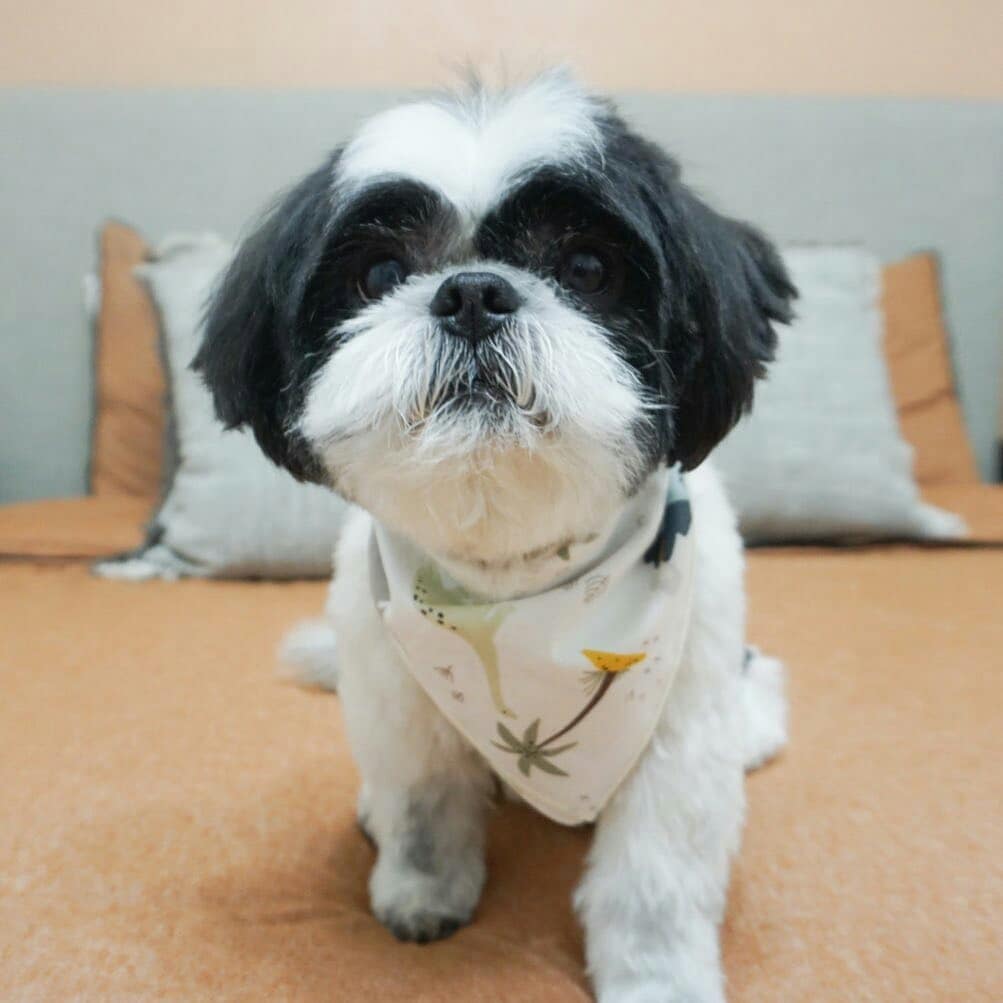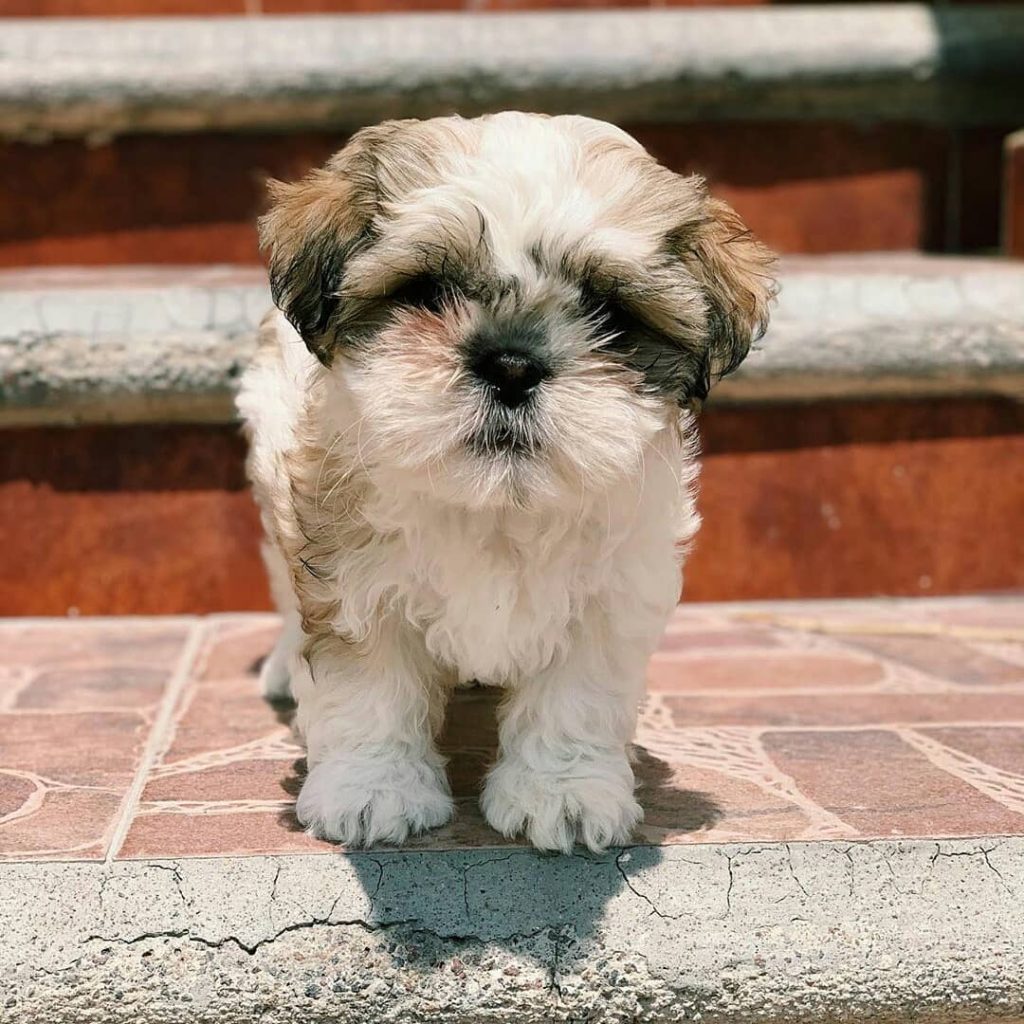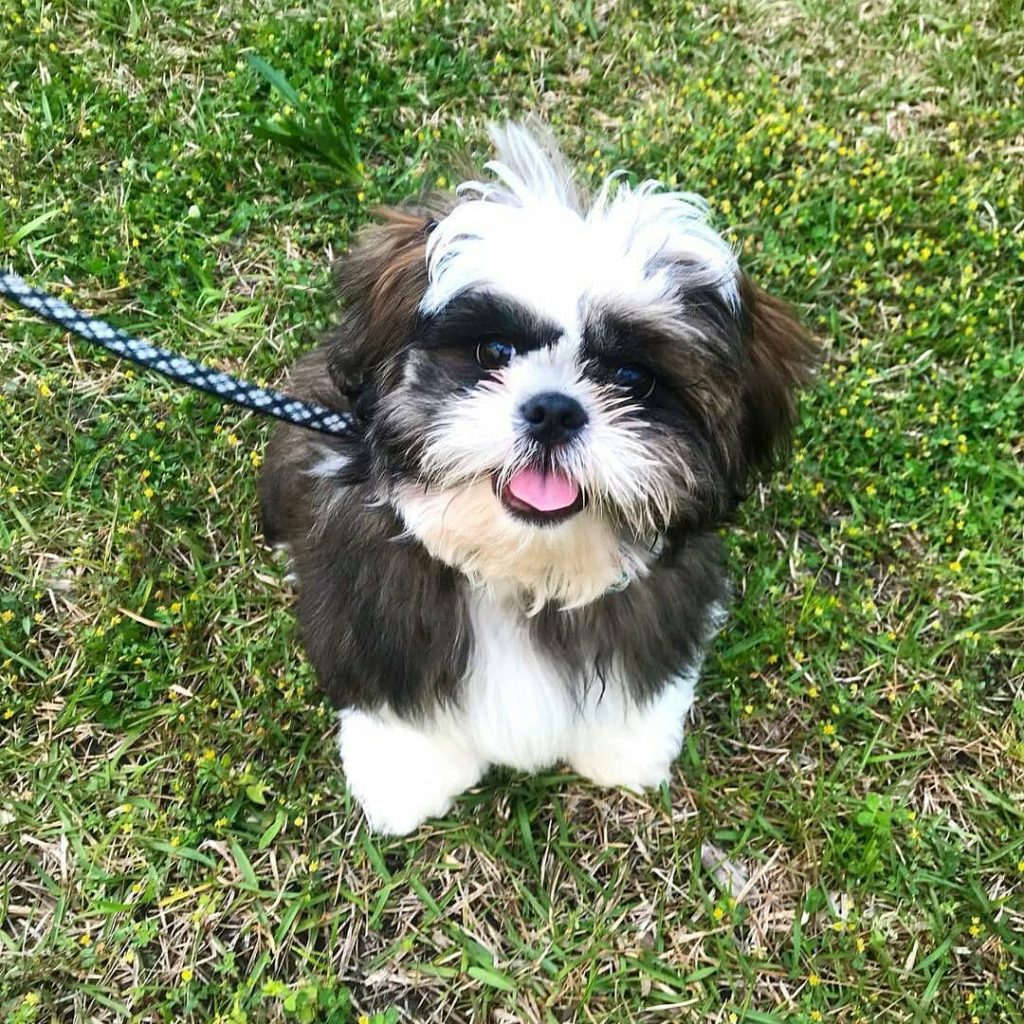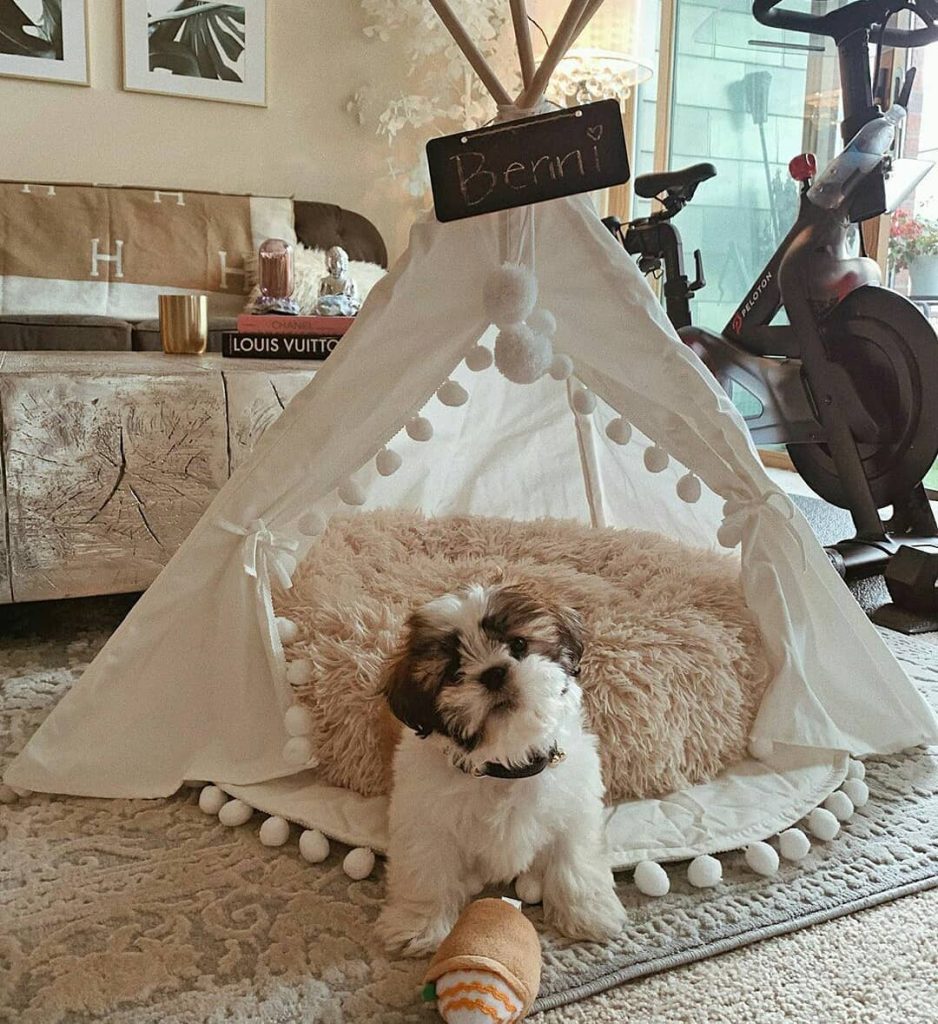
The Shih Tzu breed, often known as the “Lion Dog”, is a small dog breed enveloped in elegance and mystery. Characterized by its flowing coat, distinct face, and gentle demeanor, this breed has captured the hearts of dog lovers around the world. The introduction to the Shih Tzu breed offers a glimpse into the rich tapestry of history, physical attributes, and the unique personality traits that define these charming dogs.
Defining the Shih Tzu
The Shih Tzu is a small, sturdy toy dog with a vibrant personality and a royal background. Recognized for its beautiful, luxurious coat that can be seen in a variety of colors and patterns, this breed stands out in the canine world. Their expressive eyes, often described as warm and friendly, coupled with a short snout, contribute to their unmistakable appearance. The Shih Tzu is not just about looks; their affectionate nature and love for companionship position them as excellent pets for families and individuals alike. Joining a Shih Tzu club can provide valuable resources and connections for owners of this delightful breed.
Breed Origins and Shih Tzu History
The origins of the Shih Tzu are steeped in legend and history, tracing back to ancient China. These dogs were prized by Chinese royalty and were often associated with the Buddhist god of learning, who was said to travel with a small lion dog. The breed’s name, “Shih Tzu”, translates to “lion dog” in Chinese, reflecting their noble and dignified stature. Throughout history, the Shih Tzu was kept in luxurious conditions, often found in the laps of emperors and nobles. It wasn’t until the mid-20th century that the breed became popular in the West, where it quickly gained prominence as a beloved small breed companion dog.
Physical and Behavioral Traits of Shih Tzus
Delving into the physical and behavioral traits of Shih Tzus reveals why they are so cherished as companion pets. These dogs boast a distinctive appearance complemented by a spirited yet affectionate temperament, making them ideal for a variety of lifestyles. Understanding Shih Tzu health considerations is essential for ensuring their well-being throughout their lives.
Key Physical Features
Shih Tzus are known for their compact size, with adults typically weighing between 9 to 16 pounds and standing about 9 to 10.5 inches at the shoulder. Their most striking physical feature is their luxurious double coat, which can grow quite long and requires regular grooming to maintain its splendor. The coat comes in multiple colors, including black, white, gold, and combinations thereof, often with a distinctive “mask” of darker fur around the face. Their large, dark, round eyes exude warmth and friendliness, set in a round face with a short, square muzzle. Despite their small stature, Shih Tzus carry themselves with a noble and proud posture, often described as having a somewhat arrogant carriage. Understanding the grooming and exercise needs of a Shih Tzu is essential for their health and well-being.
Understanding the Shih Tzu Temperament

The temperament of a Shih Tzu is as delightful as its physical appearance. These dogs are renowned for their friendly, outgoing, and loyal nature. They thrive on human companionship and are known to form strong bonds with their family members, often displaying a preference for following their owners from room to room. Despite their small size, they are quite confident and can be somewhat independent, though they generally enjoy being part of the family activities. Shih Tzus are also known for their adaptability, making them well-suited for both city and country living. They have a playful side and enjoy engaging in games and gentle play, making them excellent companions for children and adults alike. Their alertness makes them decent watchdogs, as they will often bark to alert their owners of anything unusual, but they are typically welcoming to strangers once they understand there is no threat.
This balance of physical beauty and engaging personality traits makes the Shih Tzu a favored breed among dog enthusiasts and pet owners worldwide.
Shih Tzu Development Through Life Stages
Understanding the development of a Shih Tzu through its various life stages is crucial for providing appropriate care and support. From the playful and curious puppy years to the serene and dignified senior stage, every Shih Tzu phase of life brings unique joys and challenges.
Early Years: Puppyhood and Development
The journey of a Shih Tzu begins in its puppyhood, a stage full of growth, exploration, and learning. Shih Tzu puppies are bundles of energy and curiosity, eager to explore their surroundings and engage with their human family and other pets. This period, which lasts until about 12 months of age, is critical for socialization and training. Introducing puppies to a variety of people, environments, and situations helps ensure they grow into well-adjusted adults.
Puppyhood is also a time for rapid physical development. New owners should be attentive to their diet, ensuring they receive the right balance of nutrients to support healthy growth and development. Regular veterinary check-ups are essential during this stage to monitor their growth and to begin the series of vaccinations that will protect them throughout their lives.
Adulthood: Behavioral Maturity
As Shih Tzus transition into adulthood, around one to three years of age, their personalities and physical stature become more defined. Adult Shih Tzus are known for their graceful demeanor and steady temperament. This stage is marked by a continuation of the training and socialization initiated during puppyhood, reinforcing positive behaviors and ensuring they remain sociable and well-mannered. Understanding the specific care and attention Shih Tzu needs during their adult years is crucial for maintaining their well-being and happiness.
Physically, adult Shih Tzus require regular exercise to maintain their health, though their needs are moderate compared to more energetic breeds. Their luxurious coat also reaches its full glory during adulthood, necessitating a consistent grooming routine to prevent matting and maintain skin health. As companions, Shih Tzus became cherished members of households worldwide, admired for their affectionate nature and elegant presence.
Senior Years: Age-Related Changes
As Shih Tzus enter their senior years, typically around the age of 10, they may begin to show signs of aging, such as a decrease in energy levels and the onset of age-related health issues. Regular veterinary visits become even more critical during this time to monitor for common age-related conditions such as arthritis, dental problems, and vision and hearing impairments.
Caring for a senior Shih Tzu often involves adapting their environment to their changing needs, such as providing easier access to comfortable resting areas and adjusting their diet to suit their slower metabolism. Despite these changes, senior Shih Tzus can continue to lead happy, fulfilling lives with the proper care and attention, often enjoying gentle walks and the comfort of their family’s company.
The journey through the life stages of a Shih Tzu offers a unique experience at each step, providing their human companions with endless joy and a deep, enduring bond that lasts a lifetime.
Common Health Problems and Wellness in Shih Tzus
Maintaining the health and wellness of a Shih Tzu involves a proactive approach to their physical care and an understanding of the breed-specific health issues they may face. By focusing on prevention and early detection, owners can ensure their Shih Tzu enjoys a long, healthy life.
Shih Tzu Health Issues and Prevention
Shih Tzus are generally healthy dogs, but like all breeds, they are prone to certain health conditions. Awareness and early intervention are key to managing these potential issues:
- Brachycephalic Syndrome: Due to their short snouts, Shih Tzus can have respiratory difficulties. Keeping them in a cool, air-conditioned environment during hot weather and avoiding overexertion can help prevent problems.
- Dental Issues: Their small mouths can lead to crowded teeth, increasing the risk of dental diseases. Regular dental check-ups and cleanings, along with daily tooth brushing, can help maintain dental health.
- Hip Dysplasia: Although less common than in larger breeds, Shih Tzus can suffer from hip dysplasia. Maintaining a healthy weight and providing appropriate exercise can help manage this risk.
- Eye Problems: Their large, protruding eyes can be prone to injuries and disorders such as cataracts and progressive retinal atrophy. Regular eye exams can aid in early detection and treatment.
Nutritional Needs and Diet Tips
A balanced diet is crucial for the overall health of a Shih Tzu. Here are some tips to meet their nutritional needs:
- High-Quality Diet: Feed them high-quality dog food appropriate for their age, size, and activity level.
- Protein-Rich Foods: Ensure their diet includes adequate protein to support muscle maintenance and overall health.
- Avoid Obesity: Monitor their food intake and weight, as obesity can exacerbate health problems like joint issues and respiratory conditions.
- Regular Feeding Schedule: Stick to a regular feeding schedule and avoid overfeeding to maintain optimal health and weight.
By focusing on these health and wellness aspects, Shih Tzu owners can contribute significantly to their pet’s longevity and quality of life, ensuring they remain happy, active, and healthy throughout their lives.
Caring for Your Shih Tzu Breed

Proper care for a Shih Tzu encompasses a variety of practices, from meeting their exercise needs to maintaining their luxurious coat. Each aspect of care plays a crucial role in ensuring the well-being and happiness of this affectionate breed.
Exercise and Activity Requirements
Despite their small size, Shih Tzus benefit from regular physical activity. Here are some ways to keep them healthy and engaged:
- Daily Walks: Short, daily walks are perfect for keeping your Shih Tzu fit and for bonding.
- Playtime: Engage in play sessions with toys to stimulate their mind and body.
- Indoor Activities: Indoor games can keep them active during inclement weather.
- Avoid Overheating: Due to their brachycephalic nature, avoid strenuous exercise in hot weather to prevent overheating.
Grooming Essentials
Shih Tzus are renowned for their beautiful coats, which require regular grooming to stay in prime condition:
- Daily Brushing: Prevent matting and tangling with daily brushing, using a suitable brush for their hair type.
- Regular Baths: Monthly baths with a gentle dog shampoo can keep their coat clean and shiny.
- Eye and Ear Care: Clean their eyes and ears regularly to prevent infections.
- Nail Trimming: Regular nail trims are essential to avoid overgrowth and discomfort.
Effective Dog Training and Socialization Strategies
Training and socialization are key to a well-behaved Shih Tzu:
- Start Early: Begin training and socialization in puppyhood to develop good behaviors.
- Positive Reinforcement: Use treats and praises to encourage desired behaviors.
- Consistency: Be consistent with commands and rules to avoid confusion.
- Socialization: Expose them to various people, animals, and environments to foster a well-rounded temperament.
By adhering to these care guidelines, Shih Tzu owners can ensure their pets lead a healthy, joyful, and well-adjusted life, fully embracing the charm and companionship these delightful dogs offer.
Living with a Shih Tzu
Embracing life with a Shih Tzu can be a rewarding experience, thanks to their adaptable nature and affectionate demeanor. Understanding their compatibility with various living situations and family dynamics is key to a harmonious household.
Compatibility with Apartment Living
Shih Tzus are ideal candidates for apartment living due to their small size and moderate exercise needs. Their quiet nature makes them considerate neighbors, and they adapt well to indoor living as long as they receive adequate daily activity. Providing mental stimulation through toys and interactive play can keep them content in a smaller space. The key is to maintain a routine that includes regular walks and playtime to ensure their physical and emotional needs are met.
Family Friendliness and Sociability
Shih Tzus are known for their friendly and loving nature, making them excellent companions for families. They generally get along well with children, especially when kids are taught how to interact with dogs gently and respectfully. Their sociable attitude extends to other pets, often thriving in a home with other dogs or even cats, provided proper introductions are made. However, their small size requires supervision around larger animals to prevent accidental injury. The breed’s inherent desire for companionship means they fit seamlessly into the family dynamic, offering affection and entertainment in equal measure.
Training and Behavior
Shih Tzus may be small in size, but they have a big personality, which plays a significant role in their training and behavior. Understanding their unique characteristics is essential for effective training and harmonious living.

Shih Tzu Trainability and Learning Curve
Shih Tzus are intelligent dogs, capable of learning a wide range of commands and tricks. However, they can also display a streak of stubbornness that may challenge training efforts. Patience and consistency are key. Positive reinforcement techniques, such as treats and praise, are highly effective in motivating them. Early socialization and obedience training can help mitigate their occasional willfulness, making them well-behaved and adaptable companions.
Managing Unique Behavioral Traits
Their playful and affectionate nature makes them wonderful companions, yet their independence can sometimes translate into a desire to have their own way. Establishing a routine and setting clear boundaries from an early age can help manage these traits. It’s also important to recognize their sensitivity to tone; they respond best to gentle guidance rather than harsh corrections. By understanding and respecting their unique personality, owners can foster a positive and rewarding relationship with their Shih Tzu.
Specific Needs For Shih Tzu Care and Considerations
Shih Tzus have particular needs that, when addressed properly, can significantly enhance their quality of life. Recognizing and catering to these needs ensures they remain healthy and content.
Health and Grooming Requirements
- Regular Vet Check-ups: Essential for monitoring health and preventing diseases.
- Grooming: Their coat needs daily brushing and periodic professional grooming to prevent matting.
- Eye Care: Routine cleaning to prevent infections due to their prominent eyes.
Understanding and Addressing Prey Drive
- Moderate Prey Drive: Shih Tzus may chase small animals due to their instinct, though less intensely than other breeds.
- Training: Teach commands like “leave it” to manage their chasing behavior.
- Supervision: Especially important in areas with wildlife or when interacting with smaller pets.
Addressing these specific needs helps in maintaining the well-being of Shih Tzus, ensuring they lead a balanced and happy life.
Comprehensive Overview of the Shih Tzu
The Shih Tzu is a breed that encapsulates elegance, companionship, and a spirited personality within its small stature. This comprehensive overview highlights the breed’s most distinctive features, size, lifespan, and the supportive community surrounding these beloved dogs.
Breed Highlights and Distinct Features
Shih Tzus are cherished for their unique blend of physical and personality traits that make them standout pets:
- Luxurious Coat: Their long, flowing coat is one of their most striking physical attributes, requiring regular grooming to maintain its beauty.
- Friendly Demeanor: Known for their affectionate and friendly nature, Shih Tzus make excellent companions.
- Adaptable: They are well-suited to various living environments, from apartments to larger homes, thriving on human companionship.
Size and Lifespan Statistics
Understanding the physical characteristics and expected lifespan of Shih Tzus can help prospective and current owners provide the best care:
- Size: Shih Tzus typically weigh between 9 to 16 pounds and stand about 9 to 10.5 inches tall at the shoulder.
- Lifespan: With proper care, Shih Tzus can live a long and healthy life, usually between 10 to 16 years.

Rescue Groups and Breed Organizations
A supportive community exists to help Shih Tzus and their owners, from breed-specific rescue groups to organizations dedicated to the welfare of the breed:
- Rescue Groups: Numerous groups specialize in rescuing and rehoming Shih Tzus, providing a safety net for those in need.
- Breed Organizations: These organizations offer resources for current and prospective owners, including information on health, training, and finding reputable breeders.
Conclusion
The Shih Tzu, with its luxurious coat, endearing personality, and rich historical background, stands out as a breed that embodies the true spirit of companionship. Whether nestled in an apartment or part of a bustling family home, these dogs bring joy and affection into the lives of those they touch. Their care, while demanding in terms of grooming and health maintenance, is a rewarding endeavor that deepens the bond between pet and owner. Embracing a Shih Tzu into your life means welcoming a heart full of love, a touch of royalty, and the timeless charm of a breed that has captivated hearts for centuries.
